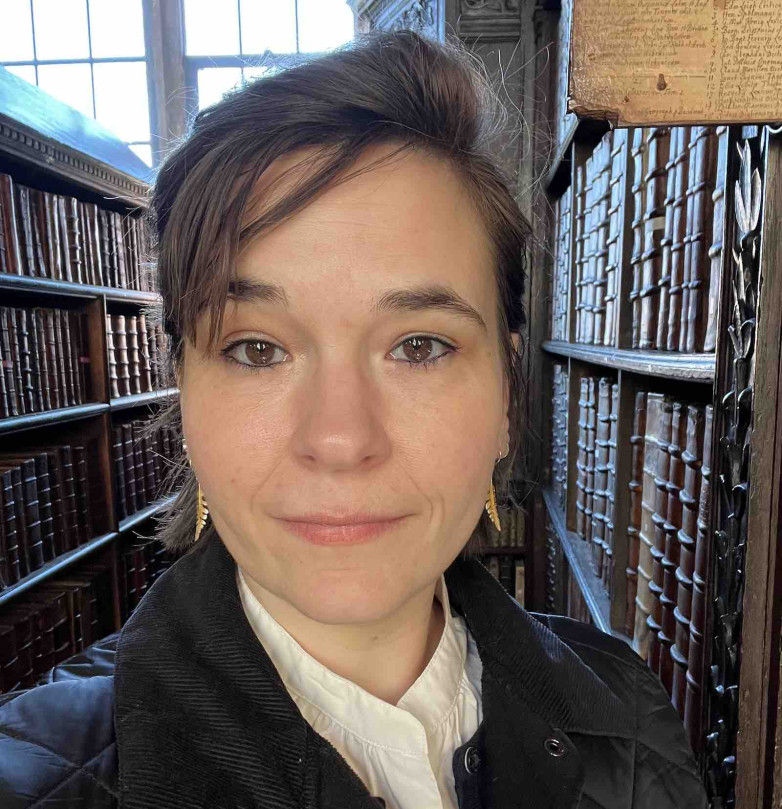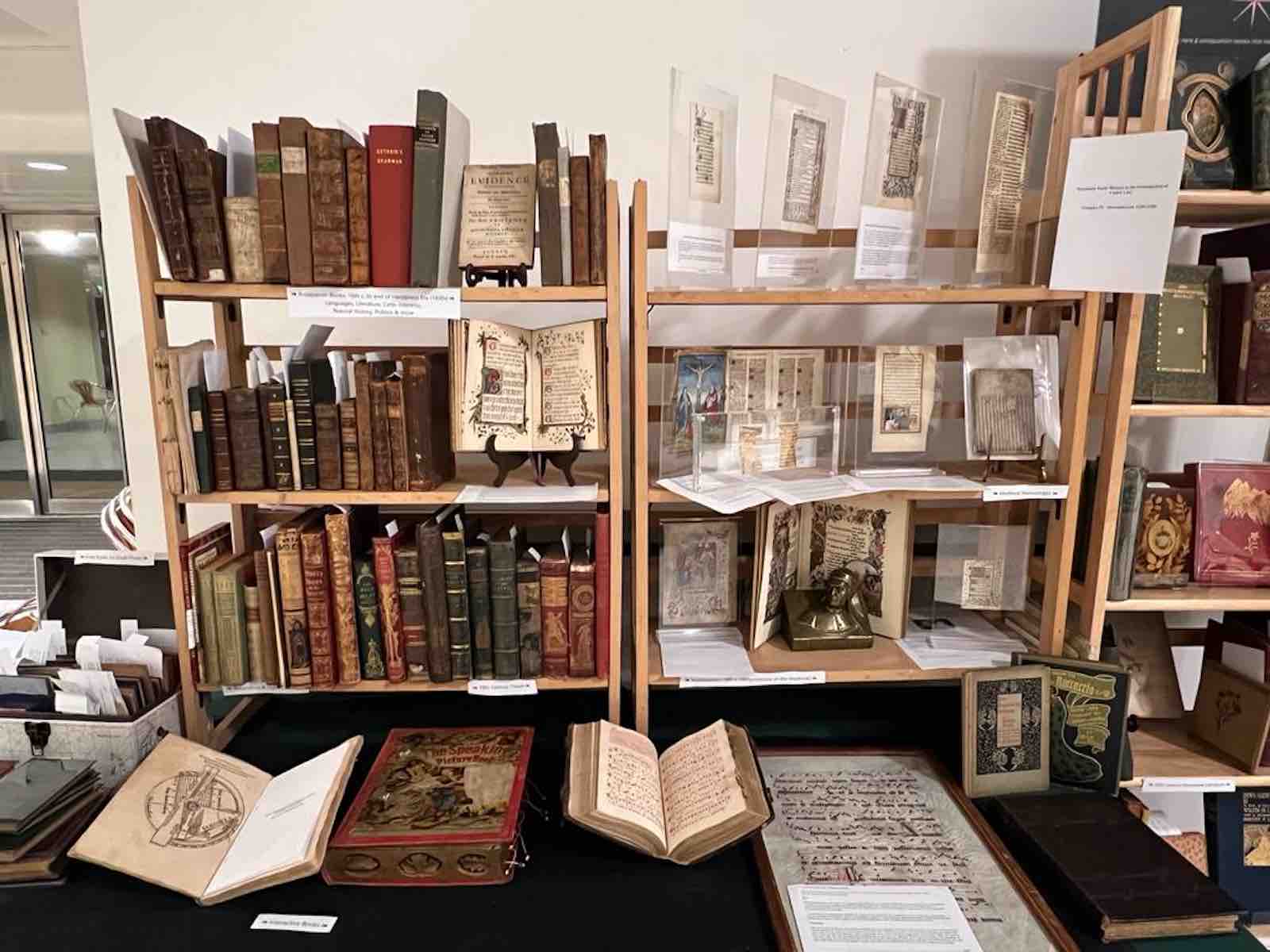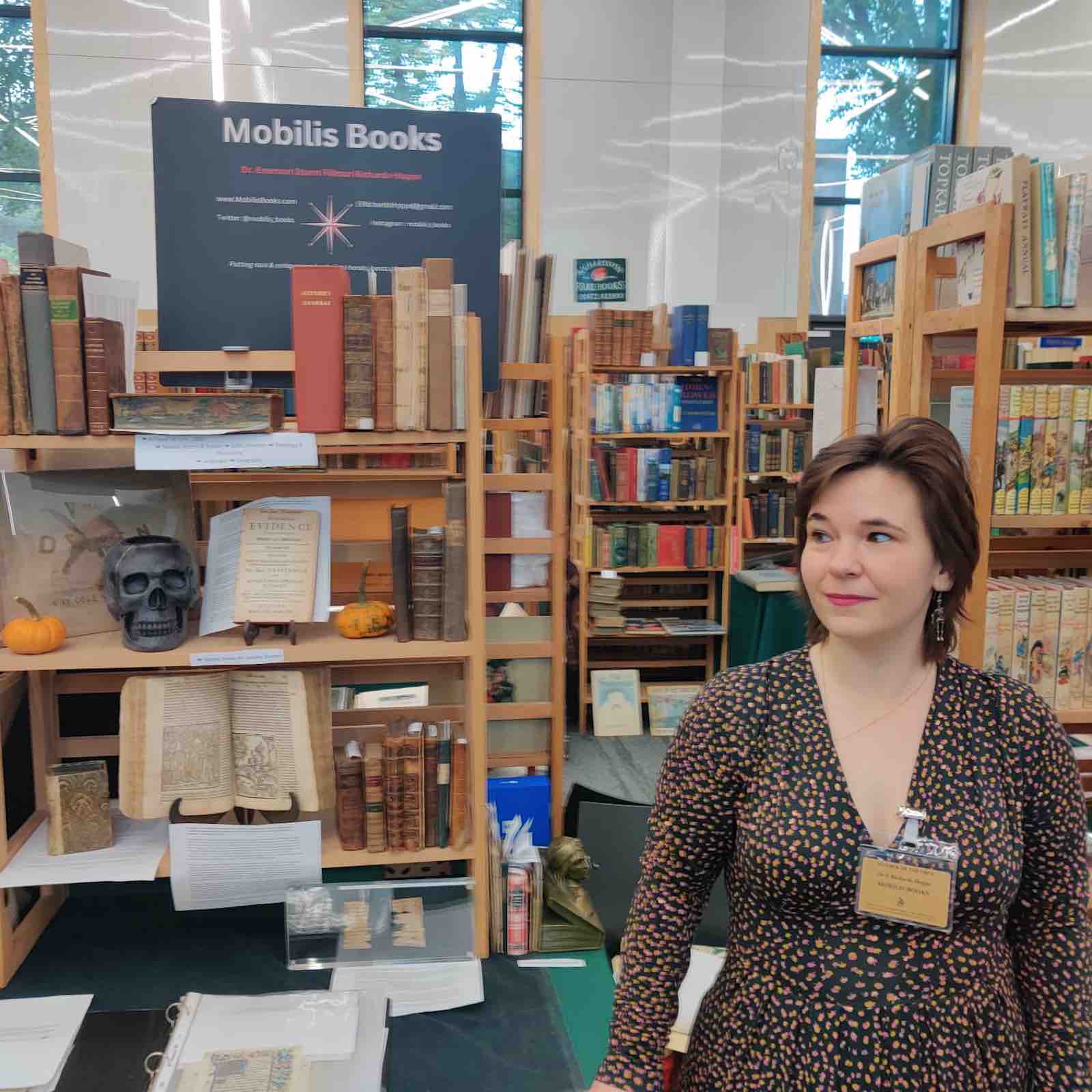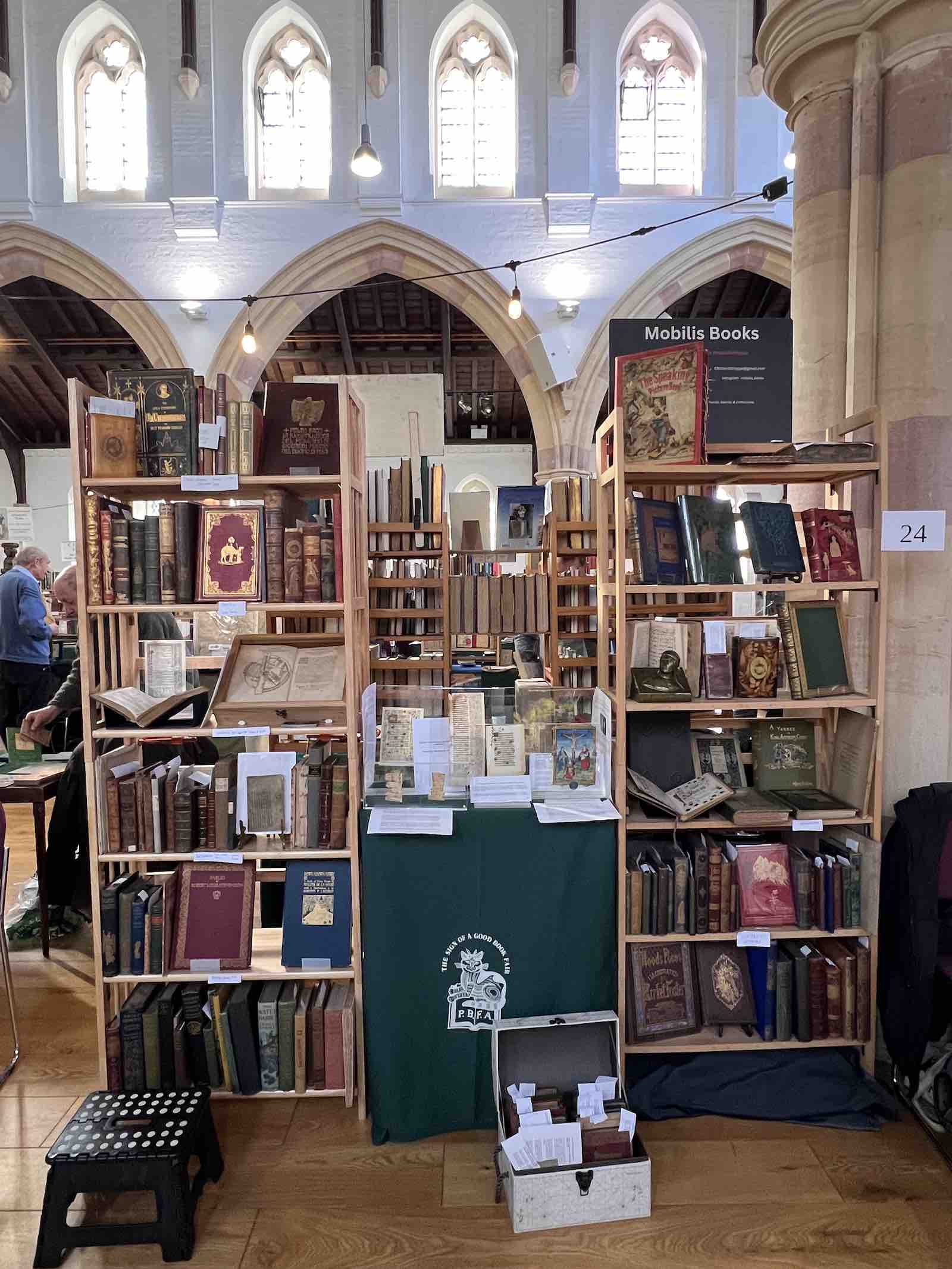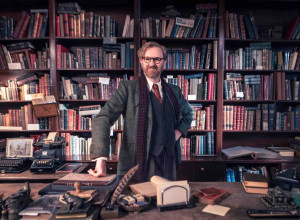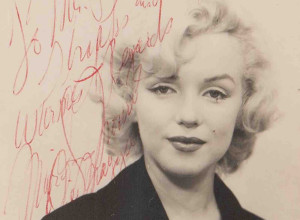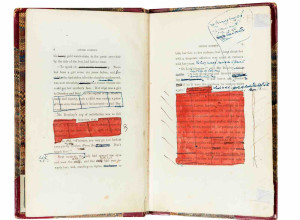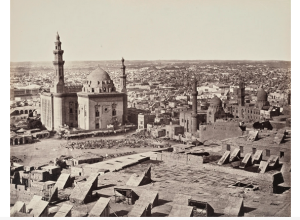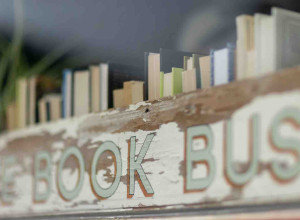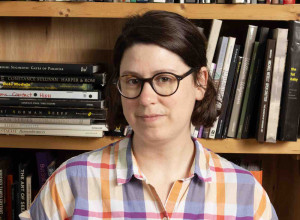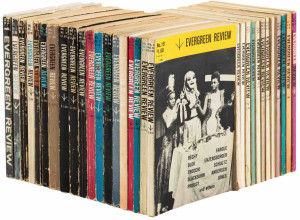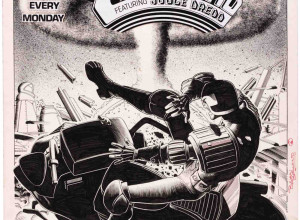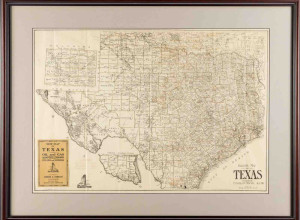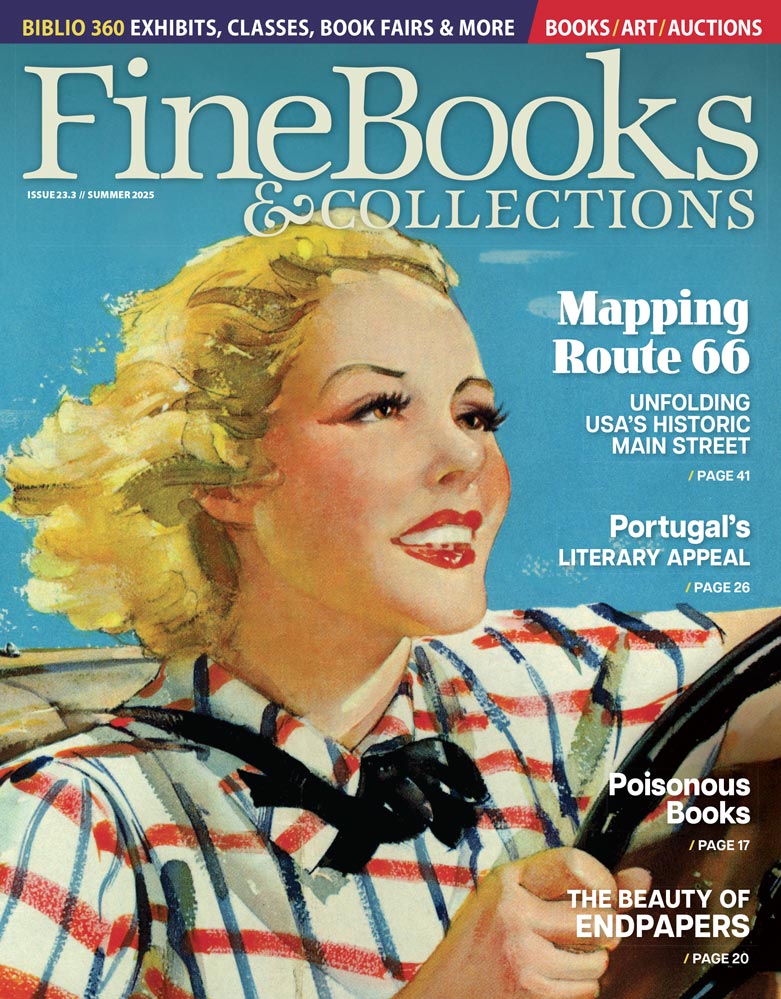Favorite rare book (or ephemera) that you’ve handled?
I recently acquired a 1502 Aldine press with two medieval pastedowns. The front pastedown I could tell was in a Carolingian script, and the back pastedown was a solid Gothic script. After I spent some time researching these two leaves, I discovered that the Carolingian one was a 9th century leaf from Terence’s Andrea and the Gothic was a mid-13th century leaf from Richard Rufus of Cornwall, written while he was still alive. I was happily able to place it at Harvard’s Houghton Library.
Another of my favorites is Peter Apian’s Cosmographia, both because of the volvelles and the immense research potential. I first encountered an edition at a Dominic Winters auction and was hooked. A bit later, I acquired a second Spanish edition (1575), and it was a joy to catalogue. I’m currently working on a translation and, in fact, I’m doing a second MA in Historical Archaeology using ArcGIS to try to figure out the location of some of the lesser-known toponyms from the geographic coordinate system within this edition.
What do you personally collect?
Really, Mobilis Books is a pretty good representation of what I collect. I like being able to be a short step in the long book-lives of these works. Even my personal collection isn’t really mine, because the books are going to outlive me and continue through other hands, as they have in the past and will continue in the future.
I collect experiences and knowledge about interesting pockets of book history like arsenic books, weird binding interventions and technologies (like pâpier maché), re-uses of medieval manuscripts, and medievalism. I don’t need to keep them forever, I just want to spend the time to research and tell people about them.
What do you like to do outside of work?
Right now, like I said, I’m working on a second MA in historical archaeology. So, when I’m not cataloguing and managing Mobilis Books’ collection, I do archaeological fieldwork. For example, this year, I’ve been a Crew Chief for a Space Force-sponsored archaeological mitigation project and I’m just finishing up six weeks in Germany as an archaeological assistant. The way I see it, archaeology, Special Collections, and the rare book trade, they’re all just different aspects of cultural heritage management and that’s what I’m into: understanding and explaining the past for various audiences through various media.
Thoughts on the present state and/or future of the rare book trade?
I love seeing Special Collections and the trade collaborate. There should be more of that going on. I know it’s not quite as easy as that because there are issues of money and budgets and not making (particularly academic) Special Collections into profit generating spaces or having donors fear that their donations will just be sold on, and likewise, the trade has bills to pay from our skillset. But sharing our collective intellectual and research resources is necessary to understand the cultural history that books as objects and literature and preservers of historical knowledge carry. It’s also so important to remember the issue of space. Will a rare book be better preserved in a Special Collections library under archival conditions than in a private collection in a sun-filled humid room? Probably. But at some point, libraries reach capacity, and so we have to do the next best thing, which is sending the book to a home that will enjoy it, learn from it, and pass on the cultural heritage from having been a small step in its booklife.
Any upcoming fairs or catalogs?
I’m always putting new material on www.MobilisBooks.com and ABEbooks and posting about the particularly interesting finds on my Instagram @Mobils_Books. I also put out an newsletter, which you can sign up for via my website or here.
I’m hoping to get up to the Allentown Paper Fair as an exhibitor and to the Boston fair to check it out as I’m still getting a handle on the trade in the U.S.. I’ve got plans for my “home” fair, the Florida Antiquarian Book Fair in Tampa.

